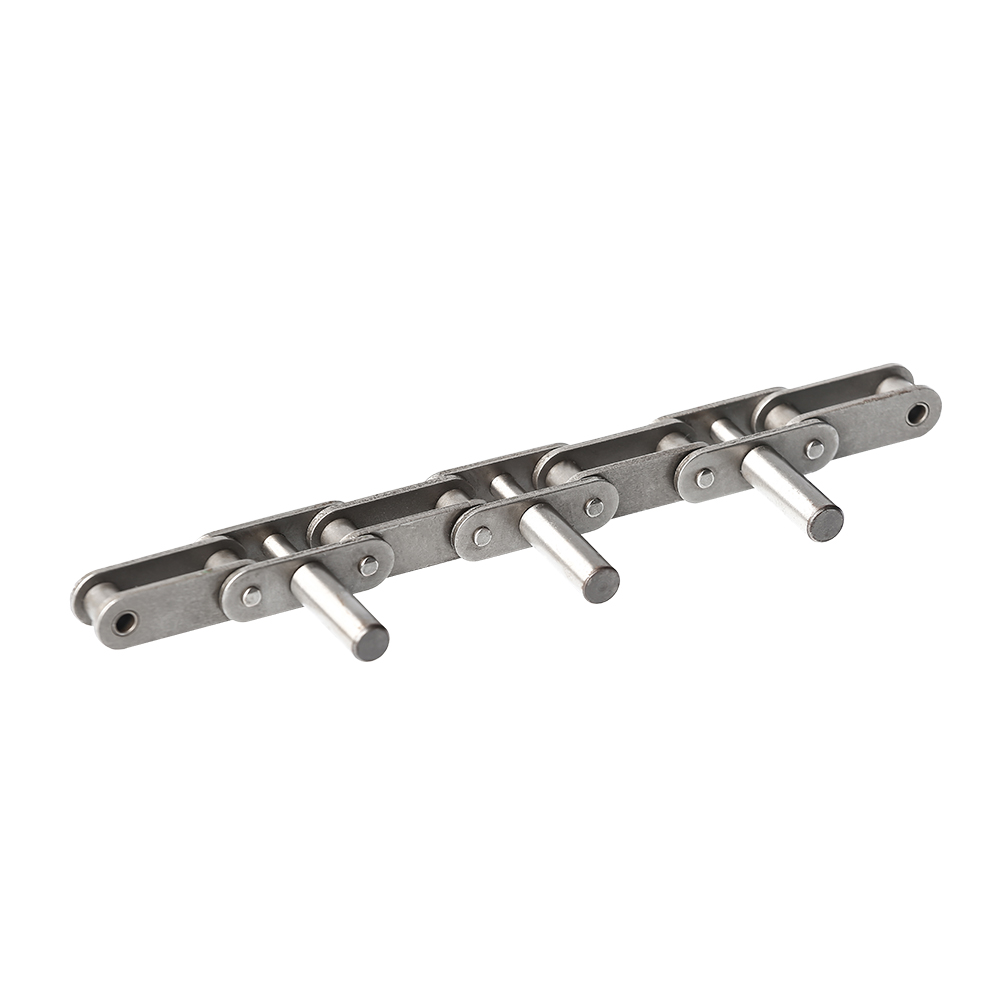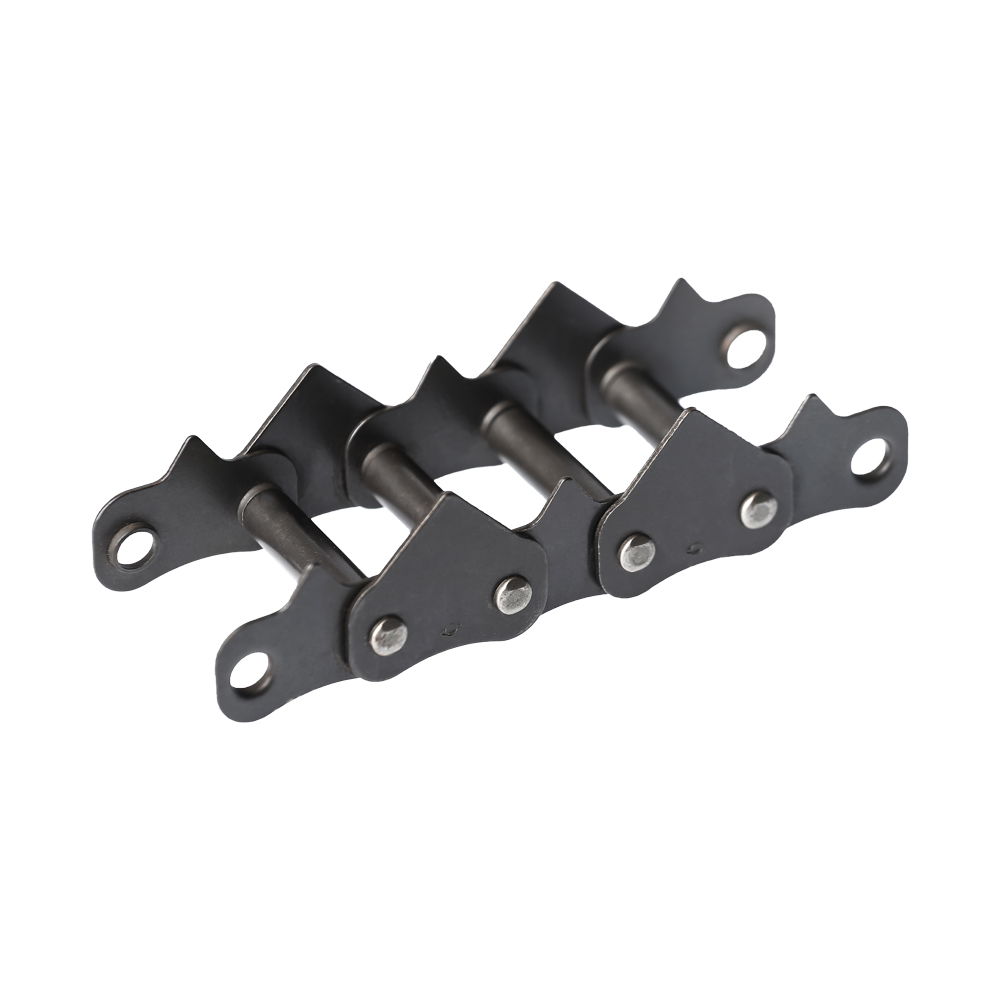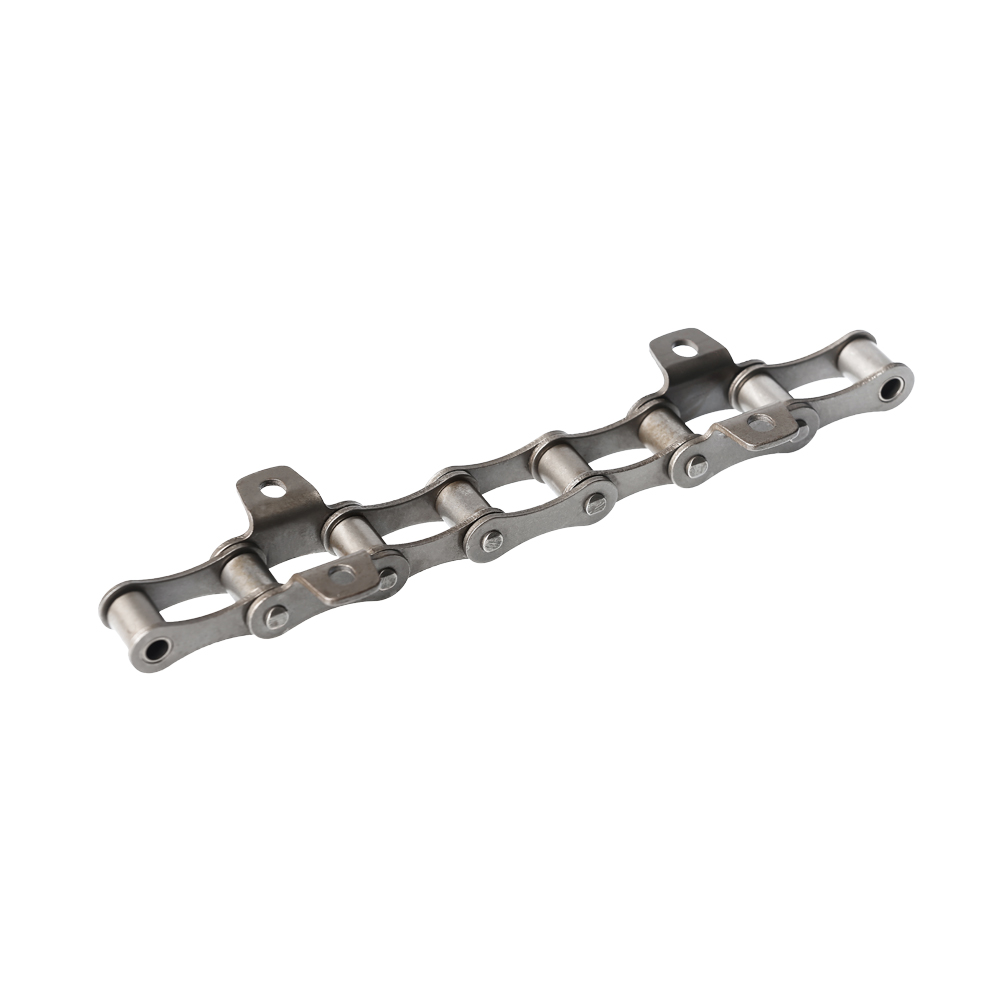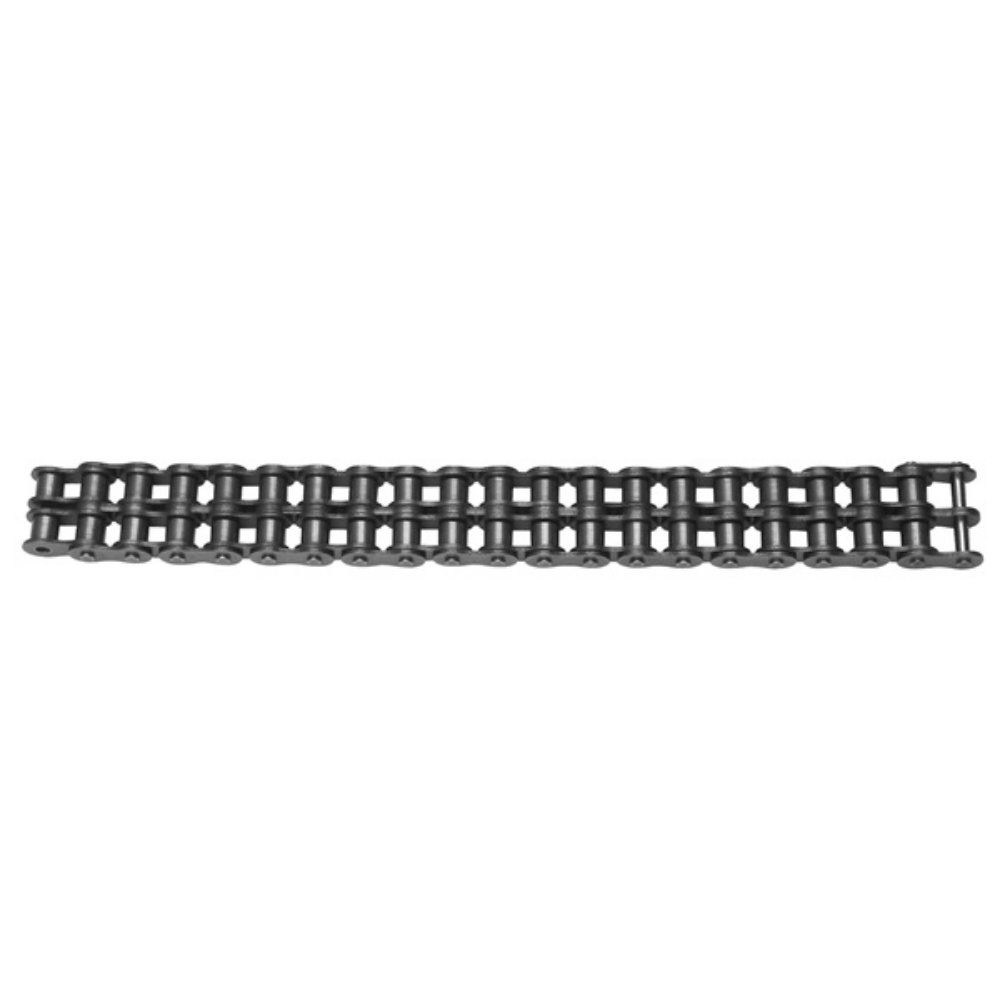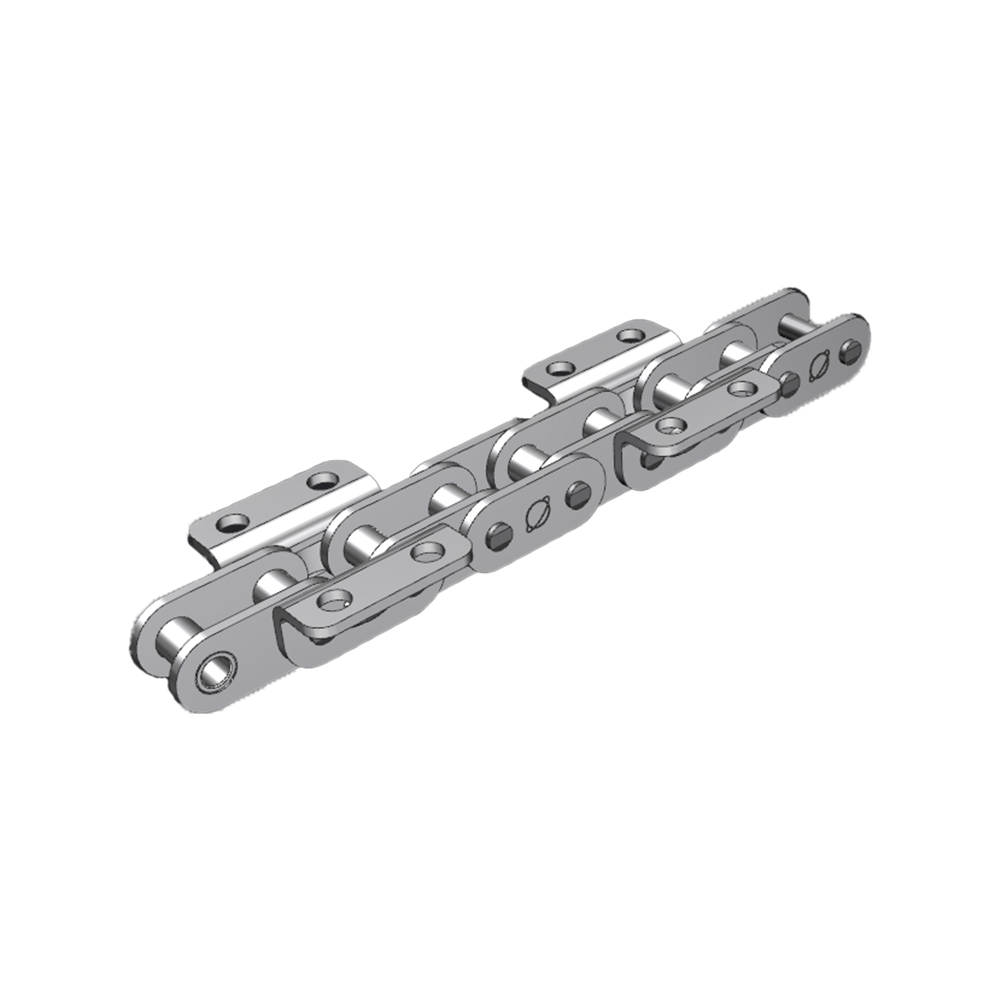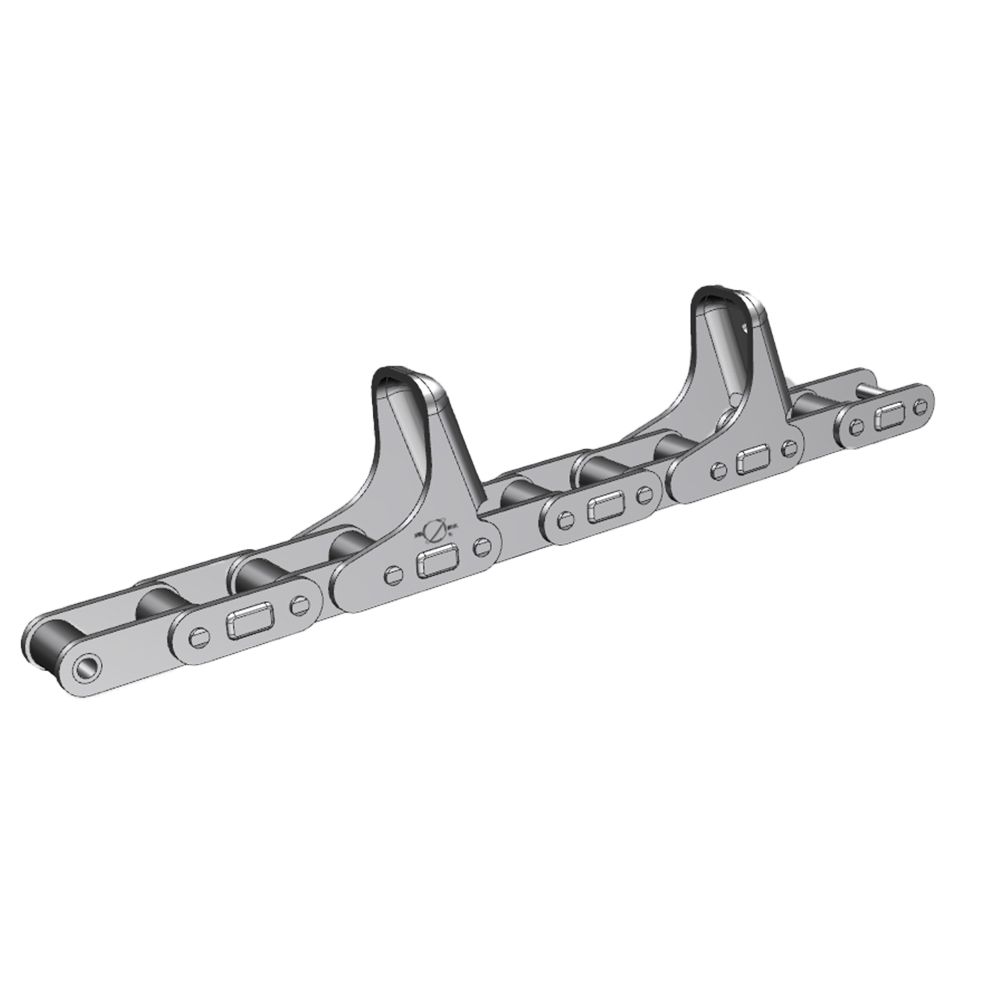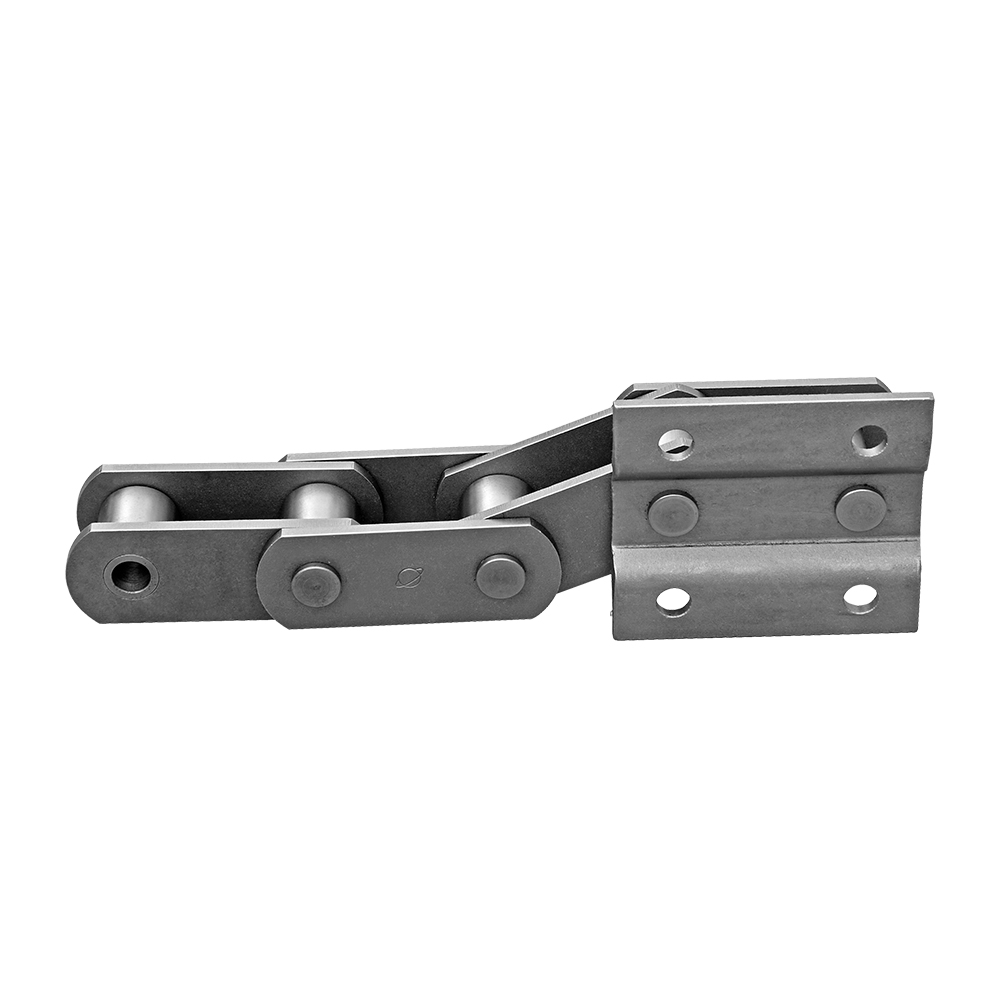Wenn Sie schon einmal auf einem Bauernhof gearbeitet haben, haben Sie wahrscheinlich schon einmal eine landwirtschaftliche Kette in Aktion gesehen.
Diese Ketten mögen wie einfache Ausrüstungsgegenstände aussehen, aber sie leisten die Schwerstarbeit – im wahrsten Sinne des Wortes.
Vom Antrieb des Mähdreschers bis zum Betrieb von Getreideförderbändern sorgen sie dafür, dass jede Maschine reibungslos funktioniert.
Doch so einfach wie „eine Kette passt für alle“ ist es nicht – hinter diesen hart arbeitenden Komponenten steckt viel mehr, als es zunächst den Anschein macht.
Interessiert? In diesem Beitrag gehen wir durch, wo landwirtschaftliche Ketten verwendet werden, welche Typen verfügbar sind und warum sie für den Erfolg Ihres Betriebs so wichtig sind.
Was machen Agrarketten?
Landwirtschaftliche Ketten übertragen die Kraft von einem Teil Ihrer Maschine auf einen anderen und sorgen dafür, dass alles synchron bleibt.
Stellen Sie sich vor, Ihre Ballenpresse würde ohne Kette funktionieren – sie wird das Heu nicht so schnell zu festen Ballen pressen können.
Diese Ketten halten schweren Lasten, rauen Bedingungen und ständiger Beanspruchung stand und sorgen dafür, dass Ihre landwirtschaftlichen Geräte dann funktionieren, wenn Sie sie am meisten brauchen.
Universal Chain bietet Optionen wie abnehmbare Ketten und abnehmbare Stahlketten, um den härtesten Herausforderungen in der Landwirtschaft gerecht zu werden.
Wo werden landwirtschaftliche Ketten eingesetzt?
In landwirtschaftlichen Ketten gibt es so viele Arbeitsplätze, dass Sie sie vielleicht gar nicht bemerken … bis etwas schief geht.
Sie befinden sich in den Maschinen, auf die Sie sich täglich verlassen – und sorgen dafür, dass von Sonnenaufgang bis Sonnenuntergang alles reibungslos läuft.
Hier erfahren Sie, was diese Ketten wirklich ausmacht:
- Mähdrescher: Diese Ketten ziehen die Ernte durch die Maschine und trennen die Körner mühelos von den Stängeln. Keine Kette? Keine Ernte.
- Heupressen: Sie komprimieren Heu und Stroh in feste, handliche Ballen und ersparen Ihnen so stundenlange, rückenbrechende Arbeit.
- Getreideförderer: Ketten lassen das Bewegen von Getreidebergen einfach aussehen, sorgen für einen gleichmäßigen Fluss und halten Ihren Zeitplan ein.
- Miststreuer: Seien wir ehrlich, das Ausbringen von Mist ist nicht gerade glamourös. Aber mit Ketten, die die Schaufeln antreiben, ist es viel einfacher – und schneller.
Arten von landwirtschaftlichen Ketten
Nicht alle Ketten sind gleich – unterschiedliche Aufgaben erfordern unterschiedliche Lösungen.
- Abnehmbare Ketten: Haben Sie schon einmal mit Geräten gearbeitet, die ständig gewartet werden müssen? Diese Ketten lassen sich leicht entfernen und ersetzen und sind daher ideal für Maschinen, die Sie häufig warten.
- Abnehmbare Stahlketten: Diese sind wie ein Panzer gebaut und eignen sich perfekt für Schwerlastanwendungen wie Getreideförderer oder große Ballenpressen. Sie erledigen die harten Aufgaben, sodass Sie sich keine Sorgen machen müssen.
- Rollenketten mit Anbauteilen: Sie haben Aufgaben, die Präzision erfordern, wie das Pflanzen oder Ernten von Feldfrüchten? Diese Ketten werden mit auf bestimmte Aufgaben zugeschnittenen Aufsätzen geliefert.
- Korrosionsbeständige Ketten: Wenn auf Ihrem Bauernhof viel Schlamm, Regen oder Nässe herrscht, bekämpfen diese Ketten den Rost und sorgen dafür, dass Ihre Geräte länger laufen.
Eine an die jeweilige Aufgabe angepasste Kette sorgt für reibungslosere Abläufe und weniger unerwartete Ausfälle.
So wählen Sie die richtige Agrarkette aus
Wenn Sie nicht sicher sind, welche Kette zu Ihrer Ausrüstung passt, sollten Sie Folgendes beachten:
- Der Job: Schwere Maschinen? Suchen Sie nach hochfesten Optionen wie abnehmbaren Stahlketten. Leichte Geräte? Abnehmbare Ketten könnten die Lösung sein.
- Die Bedingungen: Wenn Ihre Ketten Wasser, Schlamm oder Düngemitteln ausgesetzt sind, benötigen Sie korrosionsbeständige Optionen.
- Die Passform: Es ist verlockend anzunehmen, dass eine Kette für alles funktioniert, aber die Größe ist wichtig. Eine nicht passende Kette kann zu Verschleiß an Ihrer Ausrüstung führen – oder schlimmer noch, zu einem kostspieligen Ausfall.
Wenn Sie sich die Zeit nehmen, es richtig zu machen, haben Sie produktivere Tage und weniger Unterbrechungen.
Warum Universal-Kette wählen?
Wenn Sie in Ketten investieren, warum wählen Sie nicht solche aus, denen Sie vertrauen können?
Universal Chain ist seit Jahrzehnten ein zuverlässiger Partner für Landwirte.
Unsere Landwirtschaftsketten sind für schwere Lasten, unwegsames Gelände und lange Arbeitszeiten ausgelegt.
Von abnehmbaren Ketten bis hin zu Getreidekratzer-Förderketten wird jedes Produkt unter Berücksichtigung Ihrer Bedürfnisse entwickelt.
Wir verkaufen nicht nur Ketten – wir sorgen dafür, dass Ihre Ausrüstung Saison für Saison reibungslos läuft.
Häufig gestellte Fragen zu Agrarketten
1. Welche Kette ist für Mähdrescher oder Ballenpressen am besten geeignet?
Rollenketten mit Aufsätzen eignen sich hervorragend für Ballenpressen, während Förderketten für Getreideabstreifer ideal für Mähdrescher sind.
2. Wie erkenne ich, ob meine Kette kaputt ist?
Achten Sie auf Anzeichen wie Dehnung, Korrosion oder ungleichmäßige Leistung. Wenn Ihr Gerät nicht so läuft, wie es sollte, könnte die Kette das Problem sein.
3. Können Ketten mit nassen oder schlammigen Feldern umgehen?
Auf jeden Fall. Korrosionsbeständige Ketten sind für solch raue Umgebungen konzipiert.
4. Sind die Ketten von Universal mit allen Maschinen kompatibel?
Ja, unsere Ketten sind für den Einsatz mit einer Vielzahl landwirtschaftlicher Geräte geeignet.
Urteil
Landwirtschaftliche Ketten erhalten möglicherweise nicht viel Aufmerksamkeit, aber sie erledigen einige der wichtigsten Arbeiten auf Ihrem Bauernhof.
Universal Chain liefert langlebige, zuverlässige Ketten, damit Ihr Betrieb reibungslos läuft.
Bereit für ein Upgrade? Entdecken Sie unsere Leitfaden für Agrarketten oder Kontaktieren Sie unser Team Heute.

